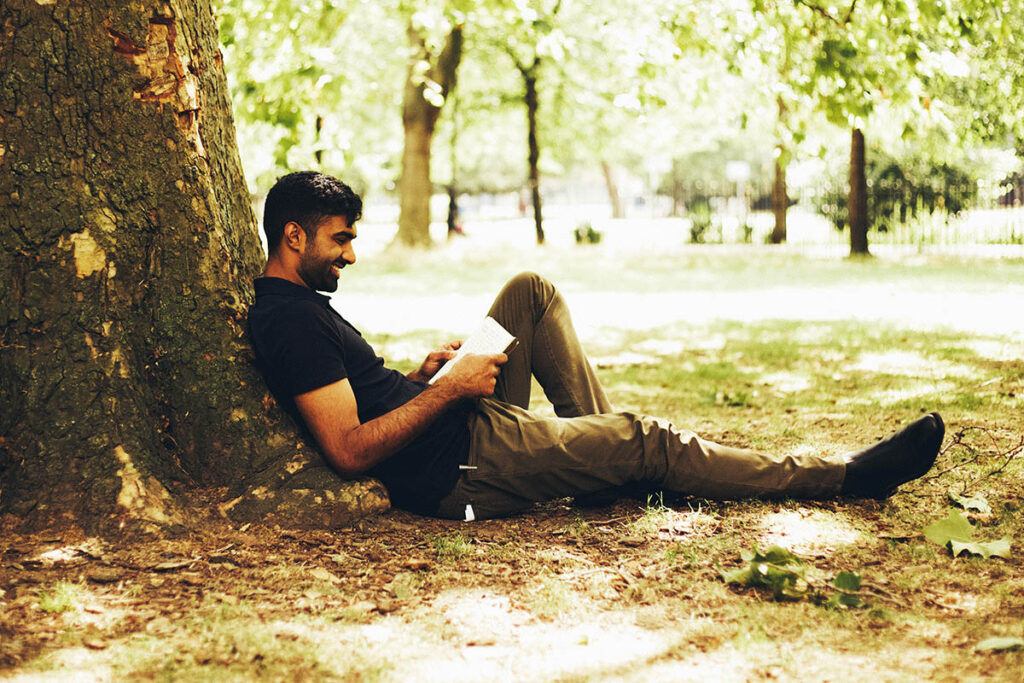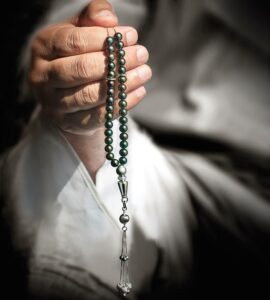How do you filter what you read through the worldview of iman (faith)?
As the saying goes “if you read what everyone else reads, you’ll think what everyone else thinks”. And in an age of information overload and viral content, we’re reading what everyone else is reading more than ever. Hence, it can be difficult to nurture our Islamic worldview and find ourselves more secular in our thinking and approach to life.
A Muslim believes with certainty that the purpose of life is to worship Allah [SWT]. As Allah says in the Qur’an:
“And I have not created the invisible beings and men to any end other than that they may [know and] worship Me.” [Qur’an 51: 57]
That puts our world view immediately at odds with many ideals that are taught and promoted.
Books written from a secular perspective, by definition, adopt a different paradigm. This paradigm argues that by eliminating religion, you eliminate bias. Therefore, a secular worldview enables looking at the world through observable reality which is more tangible and less controversial than a faith perspective that many people may not believe in.
The problem with this is that a secular or even academic approach is its own worldview. It presupposes certain ideals. Business books and personal development books are full of assumptions; such as the ultimate goal being the fulfillment of one’s own potential.’As the saying goes “if you read what everyone else reads, you’ll think what everyone else thinks”. And in an age of information overload and viral content, we’re reading what everyone else is reading more than ever.’ Omar Usman
In a secular worldview, the potential must be measured on – again – “observable” realities. These measures often come down to tangible markers like money earned. I remember hearing a popular leadership author speak about the idea of adding value to others. He said when you add value, you get rewarded with certificates of appreciation – the green kind with president faces on them (i.e. dollar$!). Adopting this world view means acknowledging to some degree that those who add the most value to society are those who generate the most profit. Clearly, this is not the case and yet, people internalize it as motivation in their quest to succeed.
Intangible measures of success in a secular worldview will often come down to ideals such as ‘doing whatever makes you happy’, or ‘being so passionate that you never feel like you’re working’, or ‘be the best version of yourself.’
The secular paradigm will always be handcuffed by the popular ideals of society at any given time. That means the definition of “best version of yourself” is subject to change based on what society values. As an example, if society de-emphasizes the importance of family while lionizing the ideal of the individual – then the family can be seen as something that holds someone back from the personal success they feel destined for.
A faith-based world view is meant to be more holistic. Islamically, we do not separate religion from other aspects of life. Religion (deen) is a way of life. This way of life regulates not only how we define success, but also the means by which we attain it.’A faith-based world view is meant to be more holistic. Islamically, we do not separate religion from other aspects of life. Religion is a way of life. This way of life regulates not only how we define success, but also the means by which we attain it’ Omar Usman
The best version of yourself, from a faith lens, is fulfilling your purpose in life in being a true ‘Abd (slave) of Allah and fulfilling the rights and responsibilities of those around you as ordained by our Deen. This paradigm may very well mean that you’ll turn down a lucrative job due to the sacrifice it would require with family. Monetary gain is not a scoreboard by which to measure your value. Rather, monetary gain is looked at critically by how it was attained and for what purpose.
A faith-based world view demands much more than evolving ethics – it introduces a component of morality which simply cannot (again, by definition) exist in a secular paradigm.
Many books are written about leadership, communication, marketing, psychology, interpersonal dynamics, persuasion, media, and so on. A secular world view cannot regulate what people do with that information or education. For example, grit and perseverance are revered characteristics. They are part and parcel of every feel-good story in which someone works hard to triumph against all odds. Unfortunately, grit and perseverance are also found in the stories of those who rise to power and cheat or oppress others.
It is a faith-based world view that provides the regulation, by way of religious ethics, to ensure these tools are used for good. An Islamic world view means filtering what we learn through the lens of the Hereafter. What am I learning? How am I using it? How is this helping me to improve? How is this helping to improve the lives of others?
What we need then, is a way to critically examine and filter the information we consume. We must find a way to benefit from the observed realities in books while also understanding the biases that helped create the conclusions the author reached. We need to critically assess how we can implement the lessons learned in a way that increases our spirituality instead of decreasing it.







